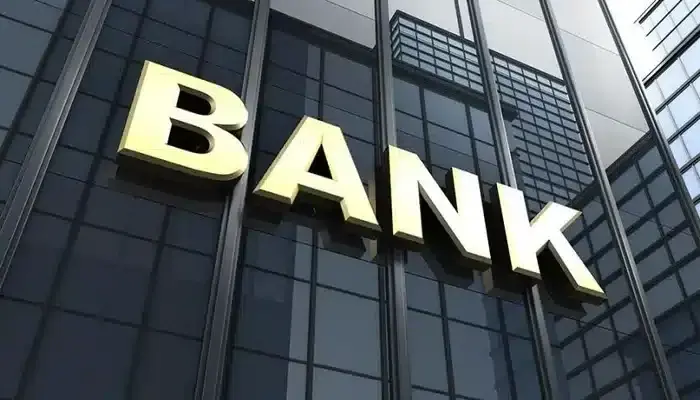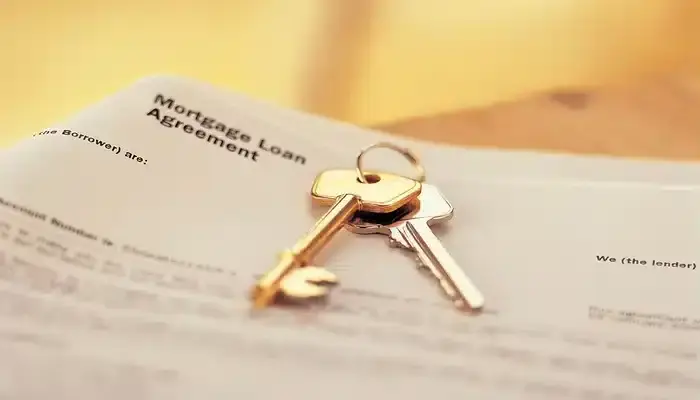Pros and Cons of Private Mortgage Lenders
If you are looking to invest as an expat or high-net-worth individual, which is what I specialize in, you can email me (advice@adamfayed.com) or WhatsApp (+44-7393-450-837).
Introduction
We will talk about the pros and cons of private mortgage lenders in this article, but let us first get into the definition of a private mortgage.
A private mortgage is a contract between a borrower and a private, individual lender wherein the latter gives the borrower financing so as to be able to acquire a house. Lenders frequently give private mortgages to family members, friends, and other people with whom they have a close relationship in order to make financial profits.
Some people could look into and opt for this choice because they might not be able to get a mortgage from a conventional lender or because they might want to bypass some red tape throughout the acquisition process.
The loan itself operates similarly to a standard mortgage in that you have a set amount of time in which to repay the principal amount borrowed plus interest. If you don’t repay the loan, the lender has a lien or a right to keep possession of your home. This lien can be foreclosed.
Pros and Cons of Private Mortgage Lenders: On Safety
Private mortgage lending has been more common in recent years, particularly in Canada, as non-bank lenders target a market that wants to own a home but does not meet the requirements for a conventional mortgage. The question of whether it is a secure alternative to what the major banks might provide is up for dispute.
Pros and Cons of Private Mortgage Lenders: Private Home Loan vs Traditional Lender Loan
A conventional loan is given by a financial organization, such as a bank or mortgage lender, and often has a set of requirements that the borrower must complete in order to qualify for the loan. These requirements are typically established by or with the approval of the federal government, which promotes both borrower and lender protection.
A private loan is given by a person or business that establishes its own policies, guidelines, and eligibility standards, which may vary for each borrower. Private mortgages are often riskier credit products because the interest rate will be higher, minimizing home equity benefits.
Additionally, they will use various qualifying standards to accept or reject applicants. Private mortgage lenders will focus on property worth while traditional bank lenders will focus on income levels, credit scores, and minimum requirements set by the federal government.
The typical borrower profile for private mortgage lenders includes people who are buying an odd piece of real estate, have bad credit, and have an unreliable source of income.
In the case of a private loan, you might not be dealing with the lender at arm’s length if you have a close relationship with them. This occurs when you take out a personal loan from a relative or acquaintance. Purchasing real estate from a family member is another illustration of a non-length arm’s transaction.
There are considerably more limitations and hurdles to jump through when you acquire a typical loan from someone you know to buy a house.
The main distinction between a conventional mortgage and a private option is that the former calls for paying the principal at a predetermined rate, so you’ll settle the loan balance plus interest each month. On the other hand, private mortgages often have interest-only payments with maturities of one to three years.

Private Mortgage Lenders vs Banks
The market for house loans is significantly dominated by mortgage lenders. This is due to the fact that they provide quick and flexible loan closing. As a result, a lot more consumers are choosing private mortgage lenders instead of banks.
This transition is taking place as a result of private mortgage lenders being subject to less stringent regulations than banks. Private lenders can readily tailor a loan suggestion to the borrower’s financial circumstances and home-buying objectives. That is the reason why so many people now choose to use these lenders.
Be aware that the majority of these private lenders operate online, so you won’t receive the same high-quality customer care you might at a bank. This is due to the fact that all correspondence will be conducted electronically, and lenders will be infrequently seen.
A servicing company buys the loans that many mortgage lenders sell to buyers after closing. You won’t be able to choose your coworkers or the people you repay a loan to, as a result. Nevertheless, even after closing, the mortgage’s terms and rates will not change.
Banks are the typical selection for choosing a mortgage loan because they have for quite a long time assisted with such loans. There may be exclusive discounts or privileges available to you if you are an existing customer of the bank. Additionally, several banks offer internal credit programs created for particular buyers, including investors.
Remember that a bank could go out of its way to guarantee you select their loan option so they could boost their revenue. For this reason, they could also make various offers in conjunction with your mortgage loan, including those for credit cards, a bank or savings account, as well as preferential terms, among other things.
They do this in order to raise the number of people who choose to use a mortgage loan. To draw in additional clients, they might also provide mortgage pre-approval.
Naturally, obtaining a mortgage loan from a bank is not always a wise move. This is so because banks are governed and have stringent lending requirements. They also have to go by federal compliance and reporting rules, so they won’t be overly generous with your loan terms.
It will be difficult for you to get a loan from a bank if you have a bad credit score or a big financial setback like insolvency or foreclosure. When it comes to finalizing a mortgage loan, they also take longer than private mortgage lenders.
The following are some benefits of choosing a bank for your mortgage loan:
- They will continue to make loan payments after closing
- If you have good credit, they might give you a loan with a reasonable interest rate
- If you are a current client, they might offer you exclusive discounts or benefits
- They provide financing programs for particular niches
- They could offer you extra advantages
Cons of choosing a bank for your mortgage loan include the following:
- Strict lending requirements
- The loan closing process is slow
- They have stricter compliance standards, which results in greater fees
- They lack a great deal of expertise in mortgage lending
Pros and Cons of Private Mortgage Lenders for Purchasers
One of the main reasons someone might consider obtaining a private mortgage loan rather than one from a conventional mortgage lender is the guidelines and limits. For borrowers who might struggle to qualify for a loan due to their financial status, credit history, and the sort of home they intend to purchase, a private mortgage could be a possibility.
The loan, however, may carry greater danger and harm to both personal and financial connections. Before choosing that a private mortgage loan is the best choice for you, it’s a good idea to weigh the advantages and disadvantages of the loan and speak with a financial expert.
The Good Sides
There are various benefits to using this form of financing, which makes using a private mortgage to buy a home look appealing:
Simpler qualifications: Since the lender sets its own criteria, it may lend to borrowers with less-than-perfect credit or permit a smaller down payment without obligating private mortgage insurance. However, if they are the only reasons for which the borrower needs the loan, they could not be in a good enough financial position to make a home purchase or take on any additional debt.
If a private lender believes the project will be profitable, they might also lend money to a flipper wanting to buy a house in less-than-ideal shape. However, problems could occur if the flip doesn’t proceed as expected and turns out to be less profitable than both sides anticipated.
Shorter approval process: You might qualify for a private mortgage more easily than with other types of lenders, which could lead to a speedier approval process with minimal roadblocks, required paperwork, and procedures like appraisals or inspections. To make sure the house is both in good physical condition and is a wise investment, inspections and assessments are essential.
Flexibility: By being more flexible, you could be able to more effectively negotiate your conditions, which could include a more accommodating repayment schedule, reduced fees, or cheaper interest rates.
The Bad Sides
Some homeowners decide that they’d be better off getting a conventional mortgage because of the drawbacks of using a private mortgage, such as:
Less protection: To help safeguard the borrower and make sure they are in a strong enough financial position to be able to manage the debt and other liabilities of the loan, some loan criteria are in place. Traditional lenders demand a specific credit score, income documentation, and a maximum debt-to-income ratio because of this.
Shorter repayment terms: Unlike a regular mortgage that lasts 15 to 30 years, private loans often demand you to repay your debt faster. Your monthly payments may be larger because you will have less time to pay off the loan, which may make it harder for you to keep up.
Many private lenders could also design their loan as a balloon mortgage, which has lower monthly payments but a sizable lump sum due in the middle or at the conclusion of the loan period. You risk losing your property if you lack the required funds and are unable to refinance the loan.
Could hurt personal ties: It’s crucial to keep in mind that a loan is a commercial transaction whether you know the individual or not because doing so could be hurtful to personal ties. That implies that once you take a loan from a relative or friend, they also become your lender and take a lien on your home.
The relationship might quickly deteriorate if you fall behind on your payments or don’t like how they’re managing your debt. Even worse, a family member or acquaintance can seize your home or the case might end up in court.
If you’re not convinced that a private mortgage is the best option for you, a traditional lender may be able to provide you with a solid alternative. Before choosing the loan that’s best for you, compare different loan types and see what you could be eligible for.

Pros and Cons of Private Mortgage Lenders for Lenders
Prior to making a private loan, people with the resources and interest should consider the advantages and disadvantages, speak with a financial adviser or a real estate lawyer, and assess the drawbacks and rewards.
The Good Sides
Investment income prospect: If you charge interest on a loan, you will eventually receive more money back (return on investment) from the borrower than you did when you first loaned it to them.
Steady monthly cash flow: Lenders receive a consistent monthly cash flow as a result of a regular repayment plan. You may have made other investments or paid for other expenses with the money you have committed to the loan.
Security: Home is used as security for a private mortgage loan, making it reasonably secure. You may foreclose on the property to recover the collateral if the borrower defaults on the loan.
The Bad Sides
Carries a higher risk: To protect both the borrower and the lender, rules and limitations are frequently implemented, as they lessen the danger of dealing with a borrower who defaults on their loan and assist in protecting the lender from making an unwise investment in a house in poor condition.
Diversification can be difficult: If you invest a lot of money in a private mortgage, it could be challenging to add additional real estate investments to your portfolio to diversify it.
You must be sort of benumbed. You need to know what you’ll do if your borrower begins to miss payments or defaults on the loan. In the worst case scenarios, you might need to sue or seize the property of your borrower, which can prove to be very challenging especially if you have a close personal connection.
Pros and Cons of Private Mortgage Lenders: How a Private Mortgage Operates
The necessary measures and safeguards must be taken to ensure the deal is seamless and both sides are in a state to be profitable with the loan because such types of loans can be riskier for both the borrower and the lender.
Search for a Private Mortgage Lender
You can ask your real estate agent, other business professionals, or conduct an online search in addition to asking your family and friends, who may be able to lend you the money or know someone who can. Make sure to check out their website and any reviews they may have while looking around for the best private loan.
Along with excellent reviews, you should search for a lender that offers competitive interest rates, simple application processes, fewer credit score criteria, quick closing time frames, or the terms you require. It’s crucial that you engage with a lender you can trust even if a lot of what you search for in a private lender may have to do with your targets.
Set Up Your Deal Terms in Writing
You might be able to negotiate some of the parameters of your loan, such as the down payment, interest rate, and loan length, since private lenders set their own rules. However, proceed with caution, particularly if you have a personal connection to the lender.
Before you sign anything, you should comprehend the ramifications of the conditions you have agreed to, including the duration of your loan, the amortization schedule, and other crucial loan specifics.
Seek Advice From a Real Estate Expert
You should engage with a real estate attorney to write your private mortgage contract and guide you through the loan application process. An experienced real estate lawyer may use their understanding of the field to assist you comprehend legalese, spot any problems, and make sure all necessary paperwork and procedures are followed. Additionally, they can make sure that both sides benefit equitably from the deal.
Organize Your Paperwork
A handshake agreement won’t hold up when it comes to financial arrangements, especially those involving a sizeable sum of money, even when they are made between friends and relatives.
To make the transaction binding and legal, make absolutely sure you have all the necessary documentation. These documents consist of:
- A promissory note, also known as a mortgage note, which certifies your agreement to repay the loan by the due date. This could include information about the loan’s terms, such as the loan total, monthly payment, interest rate, repayment plan, and any penalties the lender might apply if you miss a payment or default on the loan.
- A trust deed or mortgage, which specifies that the lender will retain title to the property until the loan is repaid in full. A lien is created on the property by a contract. In the event that you don’t make your loan payments, the lender will be able to seize your home.

Pros and Cons of Private Mortgage Lenders: Alternatives
It might not be a good idea for you to take on more debt right now if you’re thinking about getting a private mortgage for financial reasons.
Spend some time saving money if you don’t have enough to make a down payment that’s worth at least 3% to 5%.
Consider a Federal Housing Administration (FHA) loan if you don’t have enough credit to qualify for a conventional loan because it has a lower credit score threshold. You could also invest the necessary time in improving your credit as you could receive better terms if you receive a higher score.
Find out about other possibilities, such as cash-out refinances or home equity loans, if you want to flip a house.
Pros and Cons of Private Mortgage Lenders: Conclusion
An individual or business that is not a bank or other standard mortgage lender offers a private mortgage to finance the purchase of a home. Family members, close friends, and other individuals with a personal connection to the borrower frequently offer private mortgages.
An easier way to qualify for a loan is typically provided by a private mortgage lender who sets their own standards and conditions for the loans. This could be an excellent if you are someone who might not be eligible for a conventional mortgage or if you want to fix up a house then resell it later.
Again, both the lender and the borrower face a number of financial and personal dangers. Before obtaining a private loan, it’s crucial to weigh the pros and cons of private mortgage lenders. You can also consult with a real estate attorney to make sure it’s the best for you.
Pained by financial indecision? Want to invest with Adam?

Adam is an internationally recognised author on financial matters with over 830million answer views on Quora, a widely sold book on Amazon, and a contributor on Forbes.



